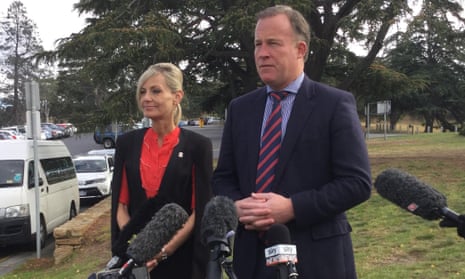The Tasmanian government is resisting a push to remove gender from birth certificates.
The proposal will be put before parliament later this year as a series of amendments introduced by Labor and the Greens to legislation intended to bring Tasmania in line with equal marriage laws that passed the federal parliament in December.
It would make Tasmania the first state in Australia to remove gender from birth certificates as a default position. Both drivers licences and passports already allow people to mark their gender as non-binary.

The amendments would prevent the registrar of births, deaths and marriages from collecting information about the gender of a child, unless ordered to do so by a court or an overlapping federal law.
A person over the age of 16 would be able to declare their legally recognised gender by statutory declaration. Children under 16 would require a declaration by at least one parent or child and the child’s own express and informed wish, with any disputes to be resolved by a magistrate.
LGBTI advocate Rodney Croome said Tasmania had some of the most discriminatory laws in Australia for transgender, gender diverse and intersex people. Crossdressing was illegal until 2000.
He said that removing gender from birth certificates was the same as a past decision to remove parents’ occupation or race. “They are not necessary,” he said.
The proposed changes are in line with recommendations from a 2016 Equal Opportunity Tasmania report, which recommended a suite of reforms to provide legal recognition to transgender, gender diverse and intersex people.
The Western Australian law reform commission suggested removing gender from birth certificates in a report in April this year, and the Australian Capital Territory has removed the requirement for a parent’s gender to be specified, following earlier changes making it easier for people to change the registered gender on their own birth certificates.
Tasmanian law currently requires that a person undergo sexual reassignment surgery before they can register their change of sex with the registrar of births, deaths and marriages.
“For a young transgender man, for example, who wants his birth documents to reflect who her really is, has to have a hysterectomy under the law,” the Greens leader, Cassy O’Connor, said.
O’Connor’s 19-year-old son also campaigned on the law change.
The attorney general, Elise Archer, said the government’s bill would remove discrimination against same-sex couples, including removing forced divorce provisions for trans couples, but that further consultation was needed before amending broader gender identity laws.
“No other state or territory in Australia has taken the step proposed of removing gender from birth certificates,” Archer said. “For Tasmania to do so, in the absence of any proper consideration of the reform, exposes the state to a range of potentially serious unintended consequences.”
But advocates have suggested that the legislation could pass the lower house, which the Liberal party holds with a one-seat majority, if speaker Sue Hickey, who was a strong LGBTI advocate in her former role as lord mayor of Hobart, decides to vote and cross the floor. Hickey told the Australian she would not declare her voting intention.
Archer said she would refer the issue to the Tasmanian Law Reform Institute and accused Labor and the Greens of “holding up” laws designed to give equal rights to same-sex couples.
Croome said it was “disingenuous” to say there had been no consultation on the issue. A new advocacy group, TRANSforming Tasmania, formed in January to campaign on this point, and met with Archer three times before taking the proposed amendments, which had been shown to the government in May, to the opposition.
“They have been debated now for several years,” Croome said. “The government has been aware of the push for these reforms for quite a while.”
